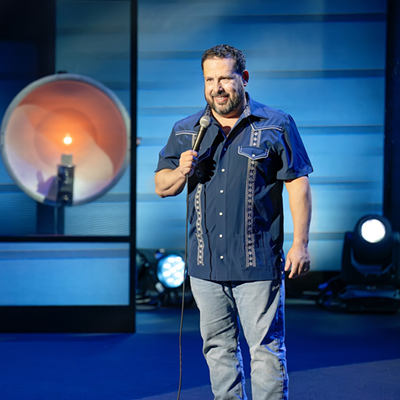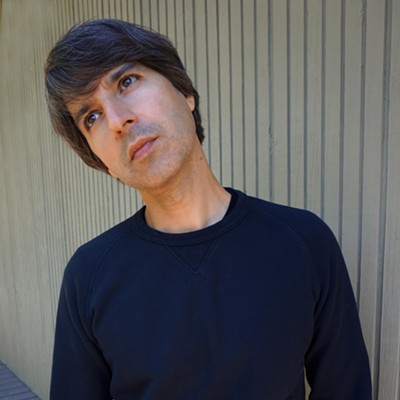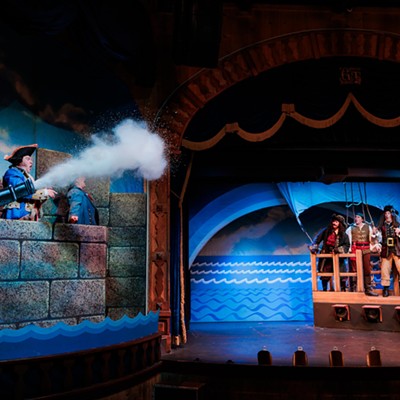Contrary to the images that one may conjure up upon hearing the word "slam," poetry slam does not involve wrestling mats, shiny unitards and/or mouthpieces.
Rather, poetry slam, which started in the mid-'80s, is competitive performance poetry that focuses on creating a community between the artists and the audience, says Lindsay Miller, one of the co-founders of the Tucson Slam Team.
"Most slams have a three-minute time limit. ... (Some) people sing or beat-box, I've seen at least one or two poets actually start break-dancing on the stage. It's rehearsed, and it's recitation, but it's not only recitation; it's whatever you can come up with above and beyond that," she says.
Miller, who has been involved in the Tucson slam scene since 2005, says a poetry slam is different from a poetry reading, because the audience can get directly involved and appreciate the performance without being a poetry expert.
"The whole point of a slam is that you don't have to be a poet, or you don't have to be educated about poetry," she says. "You don't have to have a degree in literature to understand slam poetry. The whole idea of it is to be accessible to anyone who walks in the door."
Even though the same poem may be recited on several occasions, no poem ever sounds the same, Miller says, because the audience is so involved.
"There's a pretty broad range of styles. It can be very theatrical; it can be very subdued, but it's different every time," she says. "Even if you're doing the same piece, it'll be different every time you do it, because it will be for a different audience, and they'll be responding to different things, and the energy is always changing."
Tucson's 2009 slam team—consisting of five members who were audience-selected from 11 who tried out—has spent the last three months practicing for the National Poetry Slam competition.
The National Poetry Slam, held in West Palm Beach, Fla., this year, is the largest team-poetry performance in the world, and the Tucson Slam Team hopes to make a big impression after placing in the bottom half of the competition last year.
"This year, we got started a lot earlier; we got a lot more momentum. I mean, we're miles ahead of where we were this time last year," Miller says. "I'm much more excited and much more optimistic about our chances."
But before they go, the team will host a fundraising performance and dance party at Solar Culture Gallery to raise money for the trip. The fundraiser will feature a 45-minute set from the Tucson Slam Team, during which the team members will show off their ability to cover a wide range of topics in their poems.
"Our set is going to cover everything from love poems to politics, to the theory of evolution, to how to survive a zombie apocalypse," Miller says. "The whole idea is that poetry can be about anything, and it can be for anyone, and it should be for anyone."
After the poetry slam, Sonidero Verbobala—who has done several shows with the Tucson Slam Team—will be deejaying the dance party.
"(Sonidero Verbobala is) really just a great act; they're multimedia, and they bring rhythms from around the globe, and they're very much about mixing genres, mixing languages, mixing art forms and creating something new," Miller says.
As far as the slam goes, while there may not be chairs broken over the performers' heads, there will be something for everyone—not just those literary, poetry-loving, English-teacher types.
"For people who have never seen poetry slam before, they should check it out, because they'll be surprised at all the things poetry can be," Miller says. "Whatever people's preconceived notions about poetry are, we're going to throw something new at them. It's not the same thing as the poetry you studied in high school; it's not the same thing as listening to hip-hop music, and we really take on a lot of different topics."







